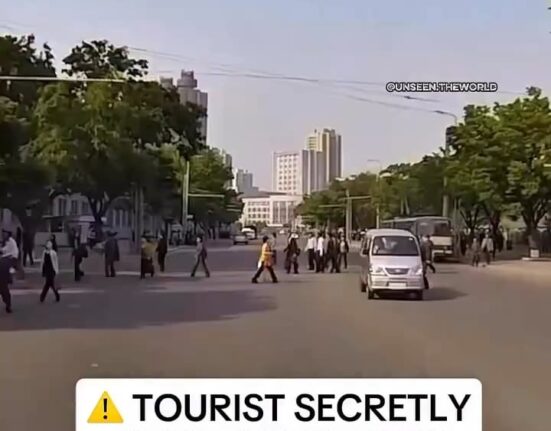In the vast expanse of the Libyan desert, a tragedy unfolded, revealing the harsh realities faced by migrants seeking refuge from war and poverty. At least seven Sudanese migrants, part of a group of 34, were discovered dead after being stranded for days when their vehicle broke down deep in the desert. Their dire situation came to light when an ambulance service official, Ebrahim Belhassan, shared the heartbreaking details of their ordeal.
The vehicle carrying the migrants had come to a halt after crossing the border from Chad into Libya, navigating a desolate path commonly used by smugglers. As days passed without rescue, the group found themselves in a desperate situation, surrounded by endless sand dunes and devoid of essential supplies like food and water. When they were finally found after 11 days, the survivors were on the brink of death, their bodies severely dehydrated, and minds haunted by the trauma of watching their companions perish.
The 22 survivors, among them five children, were evacuated to Kufra in southeastern Libya for urgent medical attention. However, the fate of five others remained uncertain as they were reported missing, with slim hopes of surviving the harsh desert conditions on foot. The discovery of the stranded migrants was made possible by a smuggler who alerted emergency services, shedding light on the perilous journey many undertake in search of safety and opportunity.
Libya, with its strategic location bordering multiple nations and a vast coastline along the Mediterranean, has become a crucial transit point for migrants from Africa and the Middle East en route to Europe. The International Organization for Migration estimates that by 2024, nearly 787,000 migrants and refugees from various countries had sought sanctuary in Libya, highlighting the magnitude of the humanitarian crisis unfolding in the region.
The plight of the Sudanese migrants found in the Libyan desert is not an isolated incident. According to Belhassan, the Kufra ambulance service has responded to numerous emergencies involving Sudanese migrants stranded in the unforgiving terrain, underscoring the pervasive dangers faced by those undertaking perilous journeys in search of safety and stability.
This tragic event serves as a stark reminder of the human cost of conflict and displacement, as well as the urgent need for coordinated international efforts to address the root causes of migration and provide support to those in crisis. As we reflect on the lives lost in the unforgiving desert sands, we are compelled to confront the broader implications of a world where individuals are forced to risk everything in pursuit of a better future. The story of the Sudanese migrants serves as a poignant narrative of resilience, suffering, and the enduring quest for hope amidst despair.









Leave feedback about this